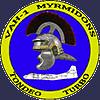Gil Hamilton wrote:I would think LeMay would be extremely titchy working for anyone at this point. Politics didn't exactly treat him well after he got out.
Frankly, though, I don't see how getting Curtis LeMay out of the pit and putting him to work is useful, even if he WANTS to go back to work. The issue with our Civil War general applies to LeMay as well; technology has changed rapidly since he worked and no matter how skilled at his job that he WAS, he's going to have to be completely retrained from scratch and also have to do a fair bit of unlearning in the process. The problem is we've got excellent people who are trained now. Somehow I think General LeMay would scorn the notion of bringing in someone 40 years out of date and retraining him out of mere sentimentality when there are experts who can do the job alot better.
LeMay, like a lot of other cases who were working up through the mid-20th century, are borderline cases.
Someone who retired in 1990 could probably be brought up to speed more or less seamlessly. The doctrine and equipment have changed, but not as much; they could catch up. They're not in the absurd position someone Lee was in, having to drill out a lifetime of thinking that weapon range is a few hundred yards and that no force can move more than twenty miles an hour at best. They
understand ideas like communication security, battlefield intelligence being important, air and artillery support being devastating, and so on, even if the tools have changed a bit.
Someone who retired in 1950 is in a much worse position. They retired in an era when foot infantry were not uncommon, when infantry heavy weapons could not reliably kill tanks except at point blank range, when support forces were less mobile, and so on. They might be able to pick up modern tactics with
relatively little training, but in this case "relatively little" would probably mean more like five or ten years instead of twenty.
LeMay
might be genuinely useful in some ways, because of certain virtues that would still apply, such as leadership ability. The ability to lead men and inspire loyalty and hard work is valuable even when the details of the work change.
The same goes for other areas when we're talking about people who retired in the mid-to-late twentieth century. Maxwell would be useless as a physicist today if we found him, and Einstein would be of little use for years, but someone more recent like Feynman could actually be helpful because the magnitude of change since he left the field is smaller.



